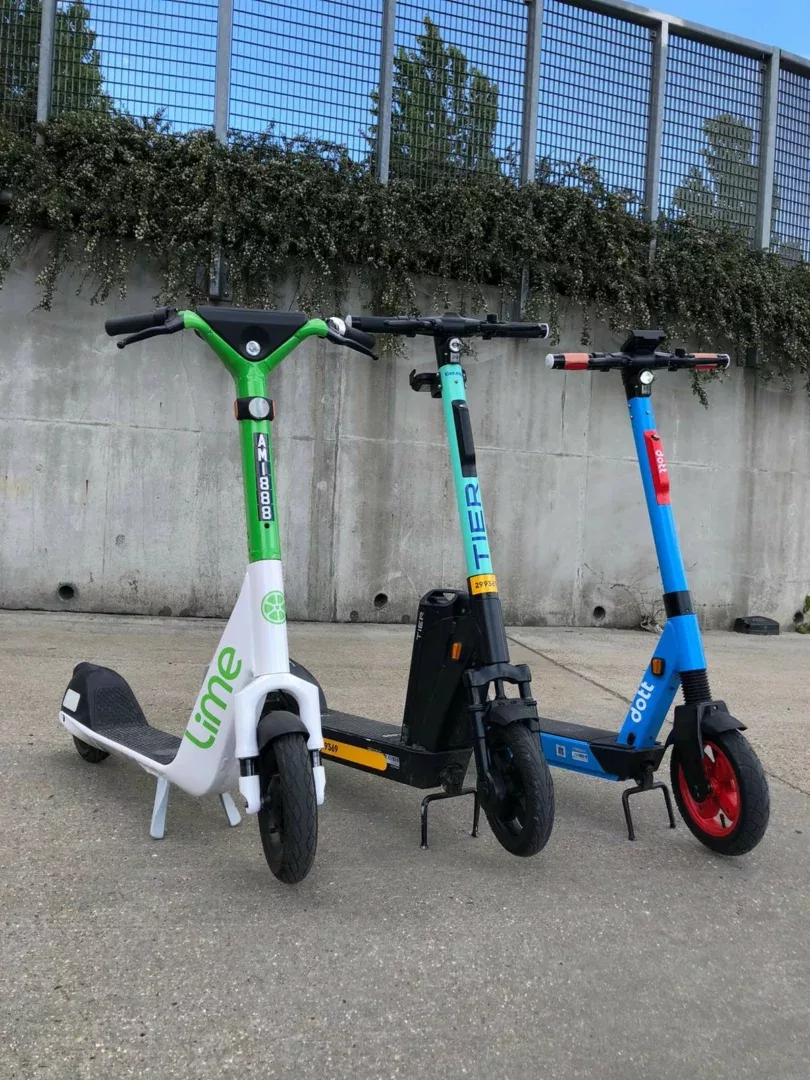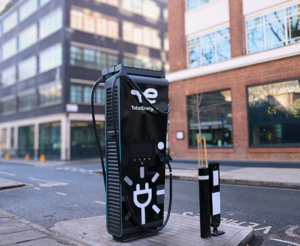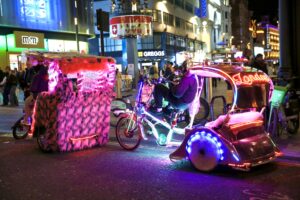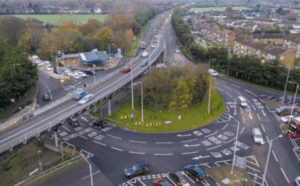TfL launched a competitive procurement process last year for operators to run the next phase of London’s rental e-scooter trial
Contracts have been awarded to Dott, Lime and Voi and will begin towards the end of September
The next trial phase will build on learnings from the current trial, as well as providing opportunities to test new onboard technologies
Data published two years on shows that more than two and a half million trips had been taken totalling nearly six and a half million km – enough to travel around the world 161 times
Transport for London (TfL) has awarded contracts to Dott, Lime and Voi, following a competitive procurement process for operators to run the next phase of London’s rental e-scooter trial. Last year, TfL and London Councils announced they were extending the capital’s trial of rental e-scooters in response to Department for Transport (DfT) guidance that allows local authority trials to continue until 31 May 2024.
The next trial phase will build on learnings from the current trial, as well as providing operators with opportunities to test new onboard technologies, including pavement riding detection, tandem riding detection and acoustic vehicle alerts. This will ensure that London can continue to learn about e-scooters and the role that they can play in London’s transport network. TfL also expects to see the network of parking locations expanded across the trial.
TfL, London Councils and London Boroughs have worked closely to agree a set of requirements for operators involved in the second phase of the trial. Operators will continue to be required to provide critical data for TfL and the participating boroughs to understand the impact of e-scooters on London’s transport goals, including the Vision Zero goal to eliminate death and serious injuries from London’s roads, and inform legislation and policy.
TfL launched the procurement process last year and operators were chosen on their ability to meet strict safety requirements and high operating standards, which continue to exceed the minimum standards specified by the DfT. The new contracts will begin towards the end of September when the existing contracts finish, and TfL and London Councils will work closely with the operators to ensure a seamless transition into the trial’s next phase in the autumn. The contracts will be able to run beyond the DfT national trial term (which is currently due to end on 31 May 2024) in the event that trials are extended further.
Following a discussion at London Councils’ Transport and Environment Committee, TfL and London boroughs will now also be exploring the design of one coordinated future scheme to manage dockless e-bikes and e-scooters in London, through a contract, to improve parking, while increasing the quality and sustainability of services in London.
Helen Sharp, TfL’s e-scooter trial lead, said: “We’re really pleased to award Dott, Lime and Voi new contracts to run the next phase of London’s rental e-scooter trial. The trial has thrived since its launch two years ago, and we’re excited to see what role e-scooters could play in ensuring a green and sustainable future for London. We hope Londoners can continue to benefit from the trial and we will continue to use its data to learn more about the role e-scooters could play in helping people move around London sustainably.”
Will Norman, London’s Walking & Cycling Commissioner, said: “London’s e-scooter rental trial has been hugely popular and I’m pleased that Dott, Lime and Voi have been awarded contracts to run the next phase of the trial.
“We’ve been clear that the trial must be focussed on safety and support the Mayor’s Vision Zero target to eliminate all deaths and serious injuries on London’s roads. London’s rental e-scooters are built to high standards, exceeding the national standard for rental e-scooters, and are significantly more robust than unregulated private e-scooters. The Mayor and I are determined to continue building a cleaner, greener and more prosperous London for everyone, and with the right regulations that prioritise safety, rental e-scooters could provide Londoners and visitors alike with a safe and sustainable travel option for London.
“Building on the successes of the trial, TfL and London Councils are also exploring how the coordinated approach taken to managing e-scooters services alongside London Councils and boroughs could be applied to managing dockless e-bikes in the city.”
Mayor Philip Glanville, London Councils Executive Lead for Climate Change, Transport and Environment, said: “Since the launch of the rental e-scooter trial two years ago, we have seen the growing popularity of rental e-scooters across the capital as Londoners choose to make greener travel choices. We look forward to working with Dott, Lime and Voi to deliver sustainable transport options for our diverse local communities.
“The rental e-scooter trial is the only legal way to use e-scooters in the capital, and boroughs are committed to making journeys easier for users, having made over 500 parking bays available.
“Following a discussion at London Councils’ Transport and Environment Committee, London boroughs stand ready to continue our collaboration with TfL on a streamlined micromobility offer for Londoners.”
Last month, TfL released new data showing that the trial has thrived since its launch in June 2021. The trial has expanded significantly since then, with ten participating boroughs, more than 600 designated parking locations, of which in excess of 50 per cent are in the carriageway, and more than 5,000 e-scooter vehicles now available for hire. The data shows that since launching, more than 2.5 million journeys have been made, covering more than 6.46 million kilometres – the equivalent of travelling 161 times around the world.
Safety remains at the core of the trial and TfL has taken steps to ensure the safety of anyone riding rental e-scooters and other members of the public, with the rental vehicles in London having high safety standards which go beyond the national standards. This includes a speed limit of 12.5mph, larger wheels and lights that are always on throughout any rental. Recent data shows that 0.001 per cent of trips resulted in serious injury and there have been no fatalities.
Data shared by the operators will also play a vital role in helping to shape London and the UK’s future policy on e-scooters. Privately owned e-scooters remain illegal for use on public land, including public roads. Private e-scooters are currently unregulated, meaning they are not currently required to meet any minimum vehicle standards. Vehicles used in the trial will continue to exceed the DfT’s regulatory requirements and will continue to be considerably more robust than the most common private e-scooters. Learnings from the trial are helping inform Government legislation of privately-owned e-scooter vehicles.
























